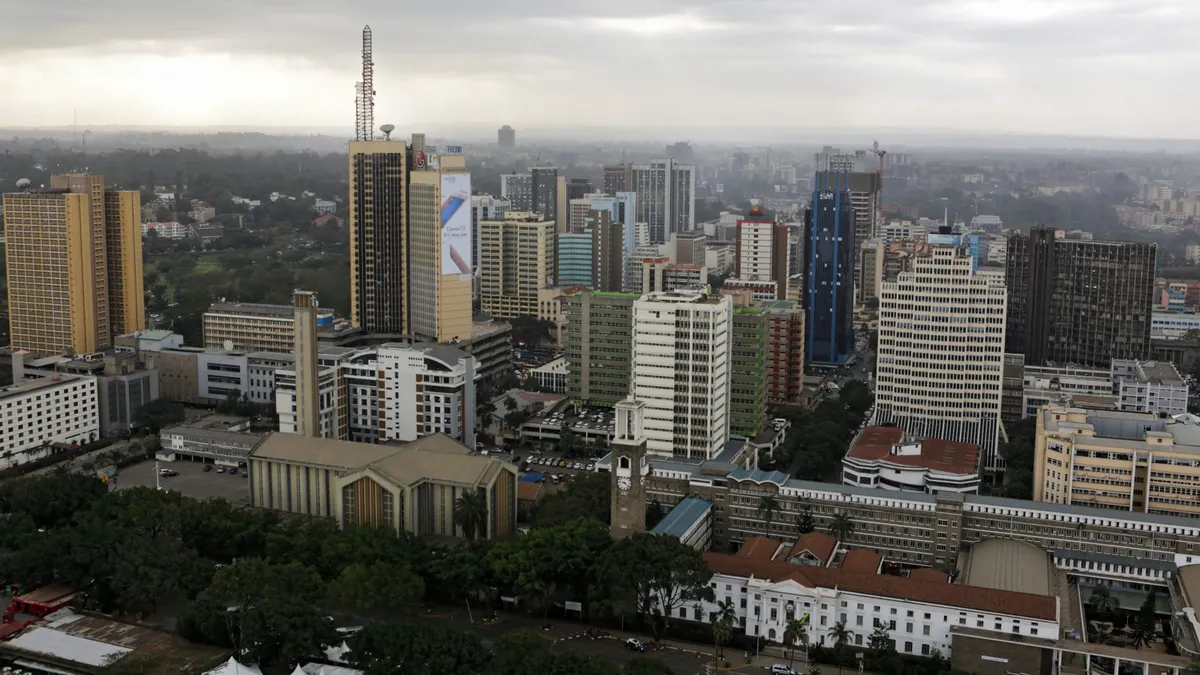In Nairobi, residing in the capital city often indicates a higher level of wealth compared to the average population in other regions of the country, according to the 2023 Gross County Product (GCP) report released by the Kenya National Bureau of Statistics. On average, Nairobi residents possess 2.7 times more wealth than the typical Kenyan living outside the city.
This report highlights Nairobi as the leading contributor to the Gross County Product among all counties, underscoring the concentration of wealth in the capital city. As a result of these factors, more than half of the 1.6 million Kenyans who relocated to urban centers throughout the country, as per the 2019 census report, were drawn to Nairobi.
In the contemporary urban landscape, cities often serve as beacons of opportunity, attracting people from rural areas with the promise of an improved quality of life. However, urban areas also exhibit drawbacks in the form of an urban service divide that disproportionately affects the impoverished. The urban poor face numerous challenges in accessing essential services, including public healthcare, education, transportation, and housing, perpetuating inequality and a cycle of poverty.
Despite the availability of these services, the urban underprivileged in major cities like Nairobi, where manufacturing, construction, and service industries are thriving, often cannot afford them. The GCP reports reveal that Nairobi, which plays a pivotal role in Kenya’s economy, contributed 27.5% to the country’s Gross Domestic Product (GDP) over the past five years, with its productivity growing by approximately Kshs 700.0 billion in the last two years alone.
Despite this economic contribution, many Nairobi residents struggle to make ends meet and are forced to endure substandard living conditions. In numerous urban neighborhoods within Nairobi, such as Kibera and Pipeline, residents face significant challenges in accessing basic services like clean water, sanitation, efficient transportation, and affordable healthcare.
According to a United Nations (UN) Habitat report, when the poor cannot access these services, they resort to self-provision through alternative arrangements that can be exploitative, further worsening their situations. The report emphasizes that a significant portion of residents who struggle to afford basic services end up paying substantially more to obtain these necessities. For instance, Mukuru, an informal settlement in Nairobi, experiences what is commonly referred to as the “poverty penalty,” with its inhabitants paying over four times the amount for drinking water compared to residents in formal neighborhoods of the city.
Studies have demonstrated that disparities in access to essential infrastructure and urban services have profound impacts on people’s lives, livelihoods, and long-term prospects. These disparities can result in poor health, environmental damage, and trapping individuals in cycles of poverty. Nevertheless, improving the quality, coverage, and affordability of basic services in disadvantaged neighborhoods can lead to citywide transformations.
For example, extending piped water and sewer networks in low-income areas can significantly enhance public health, reduce environmental degradation, and improve citizens’ overall well-being and productivity. Such transformations not only promote equitable access to urban services but also yield substantial benefits for the entire urban economy.
In its 2022 World Cities Report, UN Habitat estimates that every dollar invested in developing water and sanitation infrastructure generates between USD 4.0 and USD 34.0 in benefits by improving health outcomes and boosting urban productivity. The revitalization of water and sanitation infrastructure in targeted neighborhoods in Afghanistan, for instance, resulted in a 6.4 percent annual increase in private investment in land, housing, and real estate.
Kenya can also achieve similar outcomes by building cities that prioritize addressing urban disparities without regard to socio-economic backgrounds. By investing in infrastructure, education, healthcare, and employment opportunities across the board, Kenya can bridge the gap between urban and rural areas, promote social cohesion, reduce inequalities, and foster sustainable national development.


















